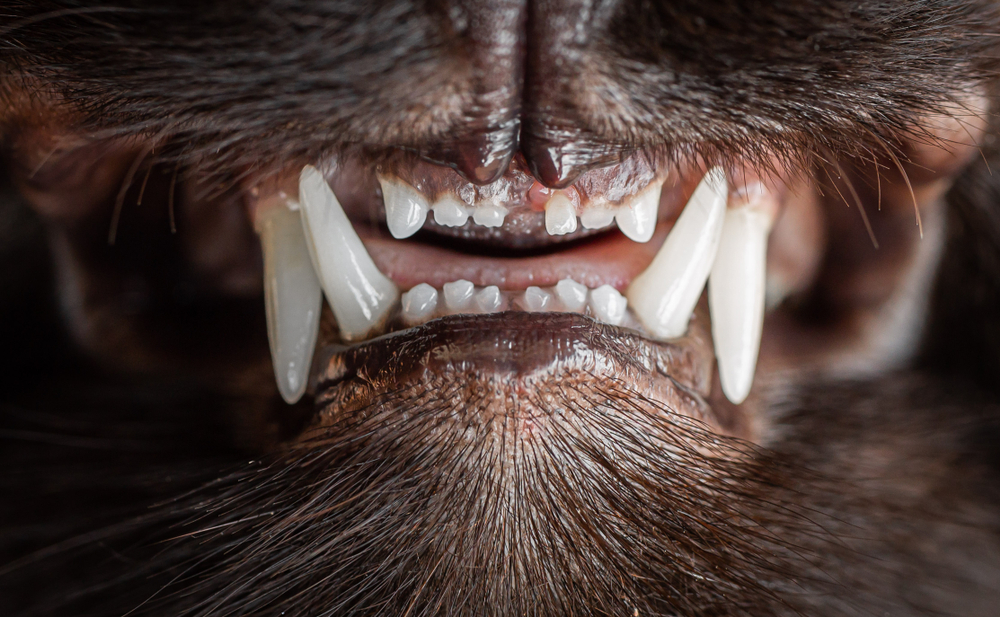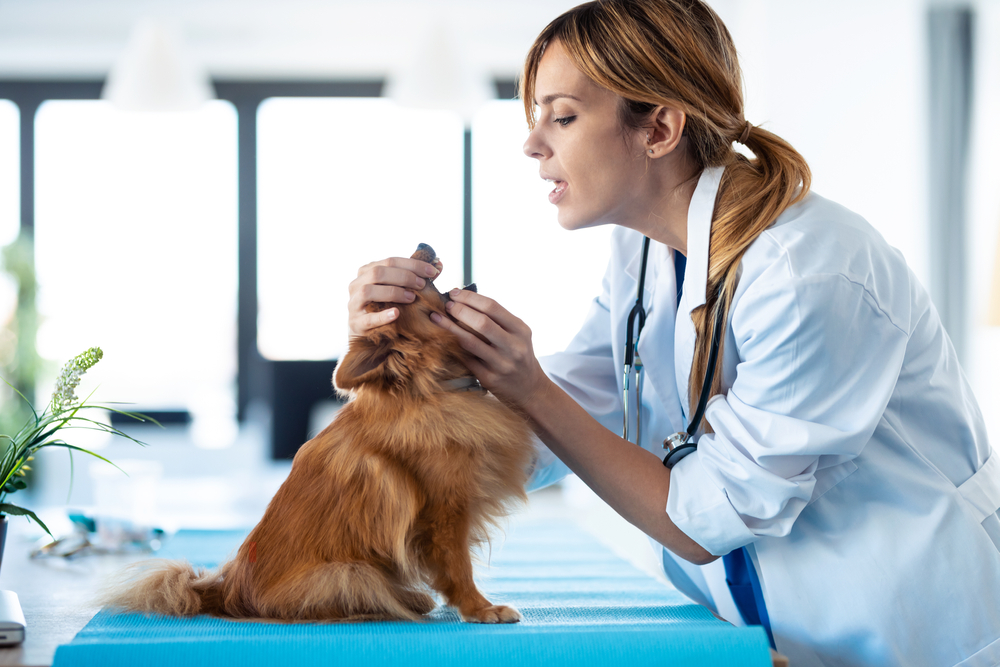
Your pet’s oral health is an often overlooked—but vitally important—component of their overall wellbeing. Most pets older than 2 years of age have early stage periodontal disease—dogs’ and cats’ most commonly diagnosed medical issue. Plaque and bacteria below the gumline are periodontal disease’s primary drivers, and the best way to control these pathogens is through regular professional dental cleanings. Without professional care, periodontal disease progresses unchecked, leading to gum recession, jawbone loss, missing teeth, and—most important—significant pain, inflammation, infection, and a decreased quality of life.
While many aspects of pet dental cleanings are similar to the care you receive from your own dental hygienist, several important differences exist. To help you better understand the dental services we provide, read our Livermore Family Pet Hospital team’s behind-the-scenes description of a pet’s professional dental cleaning.
#1: Pet wellness examination and dental evaluation
During your pet’s wellness visit, our Livermore Family Pet Hospital team will examine your furry pal’s teeth and may recommend a professional dental cleaning. We look for periodontal disease signs and other oral issues, which may include:
- Bad breath
- Gingivitis—red, swollen, or bleeding gums
- Gum recession or root exposure
- Tooth fractures
- Tartar and plaque buildup
- Extra or missing teeth
#2: Preanesthetic pet workup
To maximize safety and efficiency, and reduce the stress and pain patients would feel if they were awake, professional dental cleanings are done only while your pet is under anesthesia. Before administering anesthesia, we check your pet’s overall health and ensure their organs are functioning properly. If we find abnormalities, we adjust your pet’s anesthetic protocol, or postpone the procedure until the underlying problem is resolved. Preanesthetic tests depend on your pet’s age and health history, and may include:
- Blood work
- Urinalysis
- Chest X-ray
- Electrocardiogram (EKG)
- Heart ultrasound
#3: Day-of-procedure pet preparation
When your pet arrives for their dental procedure, we administer medications to relax and lightly sedate them. To provide your pet with medications and fluids throughout the day, we then place an intravenous (IV) catheter that allows access to their veins. We also create a warm, cozy space for your pet to rest before and after their procedure.
#4: Pet anesthesia induction and maintenance
We administer IV medication to induce anesthesia and facilitate endotracheal tube placement, which prevents your pet from inhaling fluids or stomach contents, and allows us to administer oxygen and anesthetic gas. A dedicated, trained team member monitors your pet throughout their procedure to detect and correct any vital sign changes, including heart rate and rhythm, blood pressure and oxygen saturation, carbon dioxide output, and body temperature.
#5: Pet dental scaling and polishing
Once your pet is comfortably anesthetized, our Livermore Family Pet Hospital team starts their dental procedure by scaling and polishing their teeth. During scaling, your veterinarian uses hand and ultrasonic instruments to remove plaque and tartar from above and below your pet’s gumline. Once scaling is complete, your veterinarian polishes and smooths each tooth’s surfaces—outer and inner—and removes stains.
#6: Intraoral pet X-rays
Because most dental pathology hides well below the gumline, a dental cleaning is only complete if intraoral X-rays are taken. Studies show that for 28% of dogs and 41% of cats with normal-looking teeth, X-rays actually indicated significant problems requiring treatment. Our team always takes X-rays to address your pet’s dental disease and pain adequately.
#7: Comprehensive oral examination for pets
Your Livermore Family Pet Hospital veterinarian evaluates each tooth’s health, by assessing your pet’s intraoral X-rays, doing a visual examination, and using a dental probe to detect loose gum attachments and periodontal pockets. Our team charts every detail, so we can track dental changes each time your pet has a professional dental cleaning.
#8: Dental treatments for pets
Pets with advanced dental disease often require tooth extractions and other treatments, such as periodontal flap procedures, root planing, or antibiotic gel placement, to address deep periodontal pockets. These treatments are necessary for your veterinarian to remove your pet’s pain and infection source, which can also affect nearby teeth. When your veterinarian performs your pet’s professional dental procedures before oral disease’s onset or at the condition’s first signs, your furry pal is less likely to require extensive dental work during their future professional dental procedures.
#9: Pet anesthetic recovery
When your pet’s dental procedure is complete, we turn off the anesthetic gas and allow them to wake up while continuing to administer oxygen and closely monitoring their vital signs. Once your pet can swallow, we remove the endotracheal tube and move your furry pal to a warm, comfortable area to recover. If your pet wakes up feeling anxious or confused, we give them anti-anxiety medication and stay with them until they feel better.
#10: Pet dental follow-up and home care

When your pet has recovered from the anesthesia, you can bring them home. We will provide you with specific postsurgical instructions and medications, in addition to scheduling your pet’s recheck, which will take place a few weeks later. During the recheck, we will examine your pet’s teeth and treatment sites, and extensively discuss at-home oral care techniques that can keep your pet’s teeth healthy between professional cleanings.
Now that you know what happens behind the scenes of your pet’s professional dental cleaning, you can feel more peace of mind about entrusting your pet’s oral care to us. Our hospital makes dental care affordable by including professional cleanings as an option in our wellness plans, which allow you to pay a low monthly fee for all of your pet’s preventive care needs. Schedule your pet’s dental evaluation or cleaning with our Livermore Family Pet Hospital team, and learn more about our canine and feline wellness plans.


